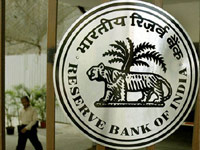RBI to introduce Rs 10-B polymer bank notes

Soiled bank notes may be a thing of the past with the Reserve Bank of India contemplating to introduce Polymer notes to find long-term and effective way of fighting against counterfeit currency, which is threatening to jeopardise Indian economy.
To start with, the Central Bank plans to introduce one billion (100
crore) Rs 10 denominated polymer bank notes on trial in five major cities in the country. Depending on the success of the project, Rbi would introduce higher currency denominations on a phased manner, said Rbi Governor D Subbarao during the foundation laying ceremony for a currency paper mill at Bharatiya Reserve Bank Note Mudran Private Limited here on Monday.
Subbarao said after consultations with the Ministry of
Finance, the Reserve Bank has decided to introduce polymer
currency notes as they are cleaner and more durable than paper notes which are in vogue now. Besides, it would be increasingly difficult to counterfeit polymer currency.
The polymer bank notes, which were introduced by Australian
government and later adopted by New Zealand, Papua New Guinea,
Romania, Bermuda, Brunei and Vietnam, have an average life span of five years compared to one year for the paper currency notes.
“As a sole issuer of currency notes, it is the responsibility of the Rbi to make available to the consumers clean and secure notes in adequate quantity.''




 Parvathi Melt-On freezing Mallu hearts.
Parvathi Melt-On freezing Mallu hearts.